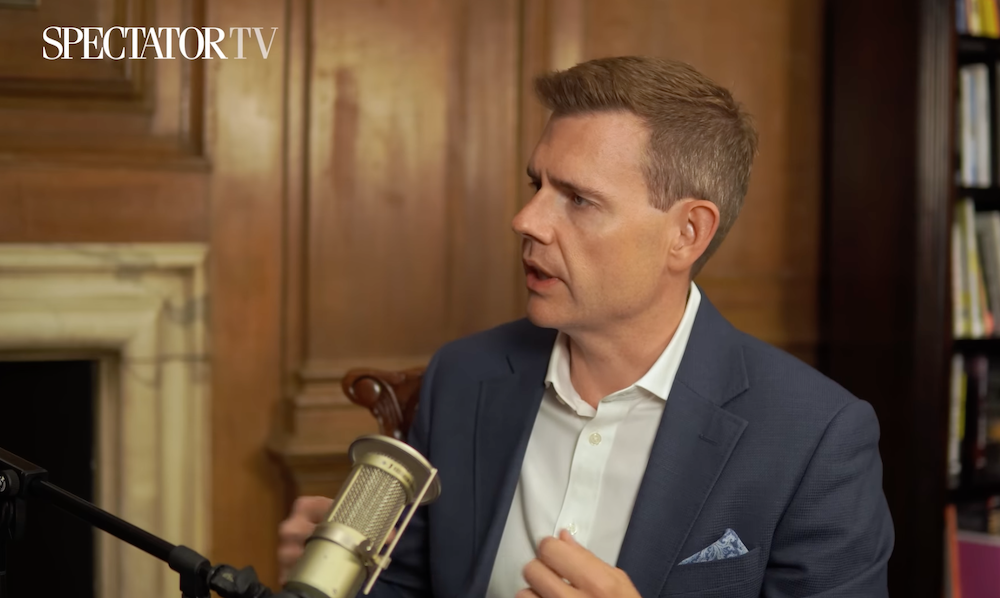The firearms officer Martyn Blake was cleared of murdering Chris Kaba this week. Kaba was a serious wrong ‘un: a violent gangland enforcer with a rap sheet as long as your arm going back to the age of 13. During the trial this information was kept under wraps, on the basis that Kaba’s past was irrelevant to Blake’s guilt or innocence and speculation about it potentially prejudicial to the Crown’s case. After the acquittal, however, all this is rightly in the open.
What is worrying, however, is that our ability to know the full facts even now was a fairly close-run thing. Immediately after the trial Chris Kaba’s family tried hard to keep the matter legally secret. Why? They were, they said, worried that any speculation might prejudice a coroner’s jury and thereby be a contempt of court.
The idea that a coroner’s court needs the same kind of protection as a criminal trial holds remarkably little water
The judge, commendably, came down in favour of allowing publication. But the point should still concern us. Put simply, it is hard to see why there should be any legal power, as there now is, to limit what the press can publish because of the prospect of a coroner’s inquest some time in the future.
We have been here before. Forty years ago a small-time hoodlum, John Mikkelsson, died in Metropolitan Police custody. To a good deal of surprise, London Weekend Television were firmly ordered by the Court of Appeal to pull a broadcast questioning the circumstances of the death. The reason: a coroner’s inquest was in the offing, albeit adjourned indefinitely and unlikely to take place for months, and till then there must be no ‘trial by newspaper’. More recently, when feelings were running high over the Hillsborough disaster and a new inquest had been set up, something similar happened. The then Attorney-General peremptorily ordered editors, publishers and social media to suppress commentary ‘which may prejudge issues that witnesses may give evidence about, or matters that the jury will need to consider in reaching their verdict’ – in other words, effectively to keep quiet about anything to do with the circumstances surrounding the disaster.
Interventions like this are very hard to justify. The idea that a coroner’s court needs the same kind of protection from prejudgment as a criminal trial holds remarkably little water. For one thing, in most inquests today there is no jury to prejudice. The idea that a staid lawyer or doctor sitting alone will be improperly swayed by what they have read or seen is pretty far-fetched. True, in some cases, including deaths in police custody, there must be a jury. But even here we have to remember two things. One is that a coroner’s jury determines no one’s guilt and controls no one’s liberty; it is limited to determining (effectively) who has died, and how they met their end. The other is that unlike a criminal trial, where guilt or innocence has to be determined solely on the basis of evidence admissible under fairly complex rules, a coroner’s court is not bound by strict rules of evidence anyway.
There are also very strong arguments of principle against allowing the imminence of an inquest to silence discussion, even temporarily. Robust media probing of circumstances surrounding a death may well do a great deal of good while events are fresh in people’s memory. When reports are put off until the wheels of some provincial coroner’s court have ground into motion weeks or months later, everyone has forgotten about the original events, and rekindling interest is likely to be at best an uphill task.
Perhaps more important, however, is the temptation to use a coroner’s investigation as an excuse to supress information. Imagine a death which could cause a government minister embarrassment, but where no one envisages charges and hence there are no criminal proceedings to prejudice. It is worrying that there should be even the possibility of the government being able to use this to suppress discussion of the matter in the press or social media until interest has died down.
Nor for that matter is this limited to government. Take the case of Chris Kaba itself. It is of course possible that his supporters’ application to keep his real character out of the public eye for the next few months stemmed from a disinterested desire to protect the integrity of a future inquest into his death. On the other hand, it’s difficult to deny that if it had been granted they would have had a heaven-sent opportunity to promote their view that it was all a matter of racist policing, while preventing the media from effectively contradicting this narrative.
Any rule that lends itself to media manipulation of this sort needs to be regarded with the greatest suspicion. The Tories are likely to have plenty of opportunities to press this administration on matters of press freedom. This, a popular cause if ever there was one, might be a good place to start the ball rolling.







Comments